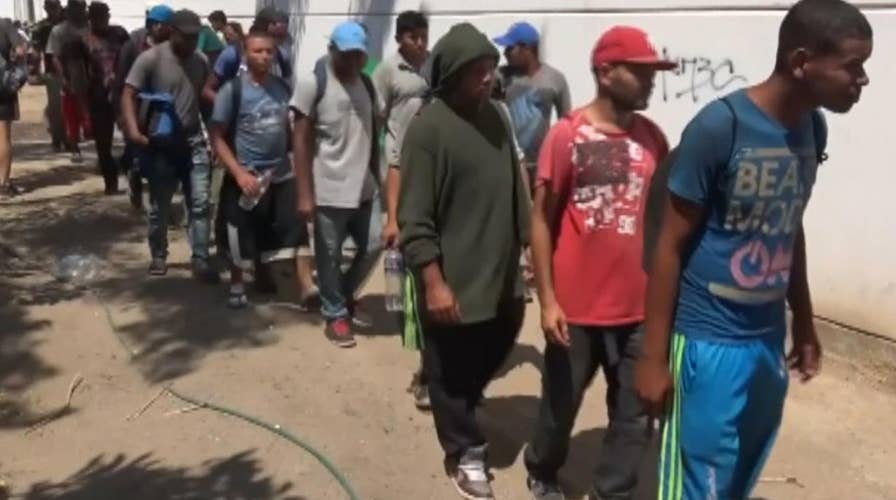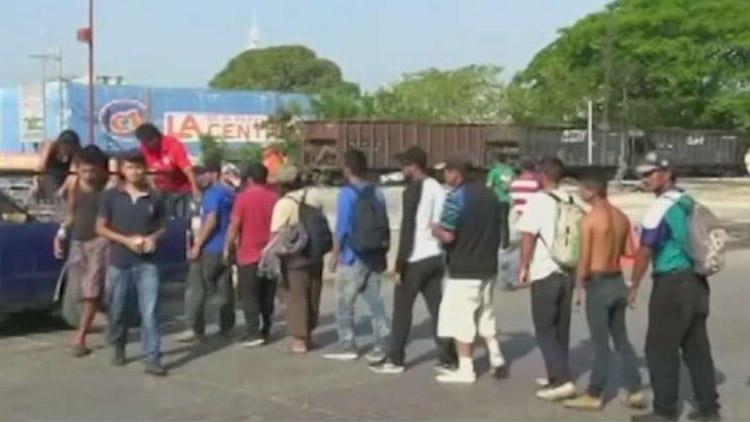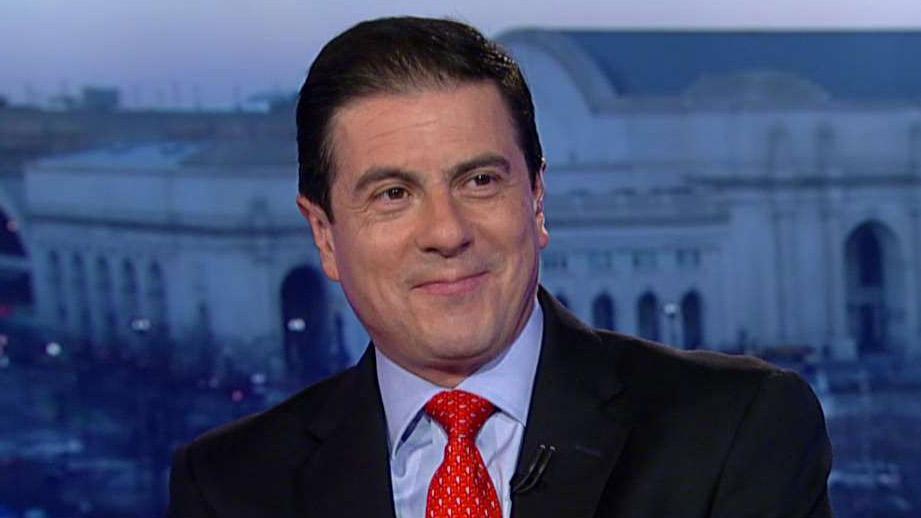‘Caravans’ and refugees: What to know
What to know about ‘caravans’ and how they relate to the border and the U.S. immigration system.
A caravan of more than 1,200 Central Americans streaming towards the United States' southern border is getting transportation help from within Mexico -- even as government officials say they're trying to disband the group amid increasing pressure from President Trump.
Mexico's Interior Ministry said in a late Monday statement about 400 participants in the caravan, which began March 25, had already been sent back to their home countries, and, unlike in previous years, "this time Mexican immigration authorities have offered refugee status" to participants who qualify.
"Under no circumstances does the Mexican government promote irregular migration," the Interior Ministry statement said.
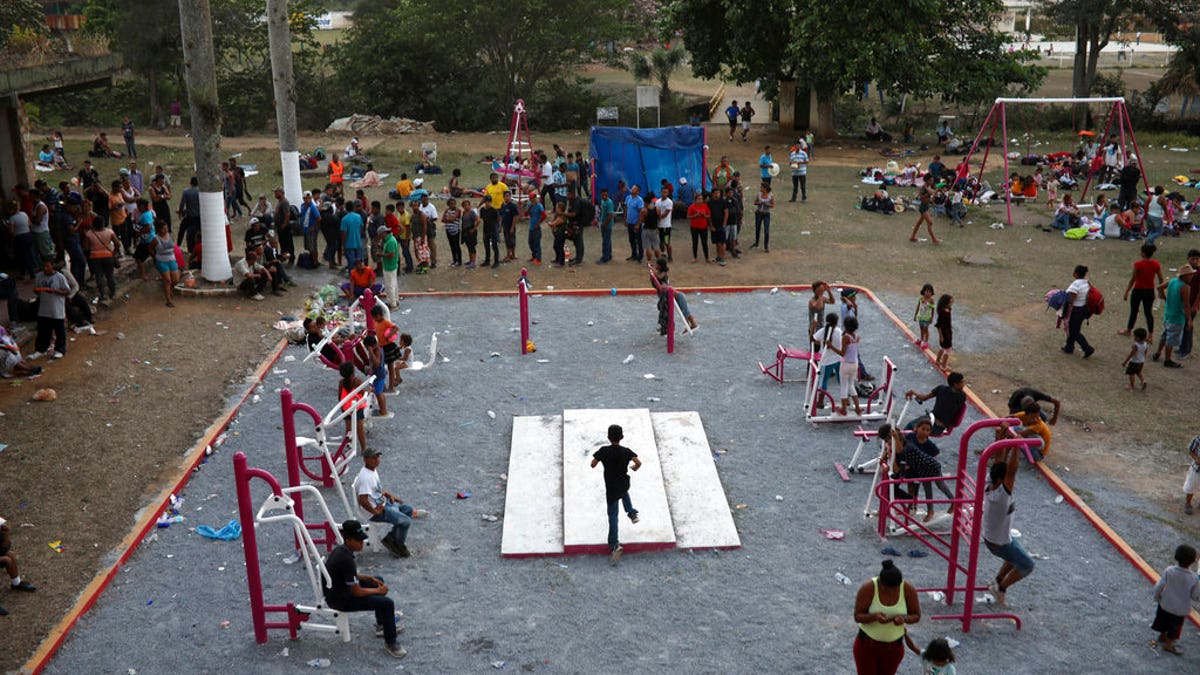
Central American migrants participating in the Migrant Stations of the Cross caravan or "Via crucis," set up camp at a sports center during a stop on April 2. (AP)
But the ministry added Mexico considers the annual caravans to be "a public demonstration that seeks to call attention to the migration phenomenon and the importance of respecting the rights of Central Americans."
The Mexican government added that, while it's been keeping officials in the U.S. informed on the situation, it's not up to Mexico to keep people from going to the U.S. to apply for asylum.
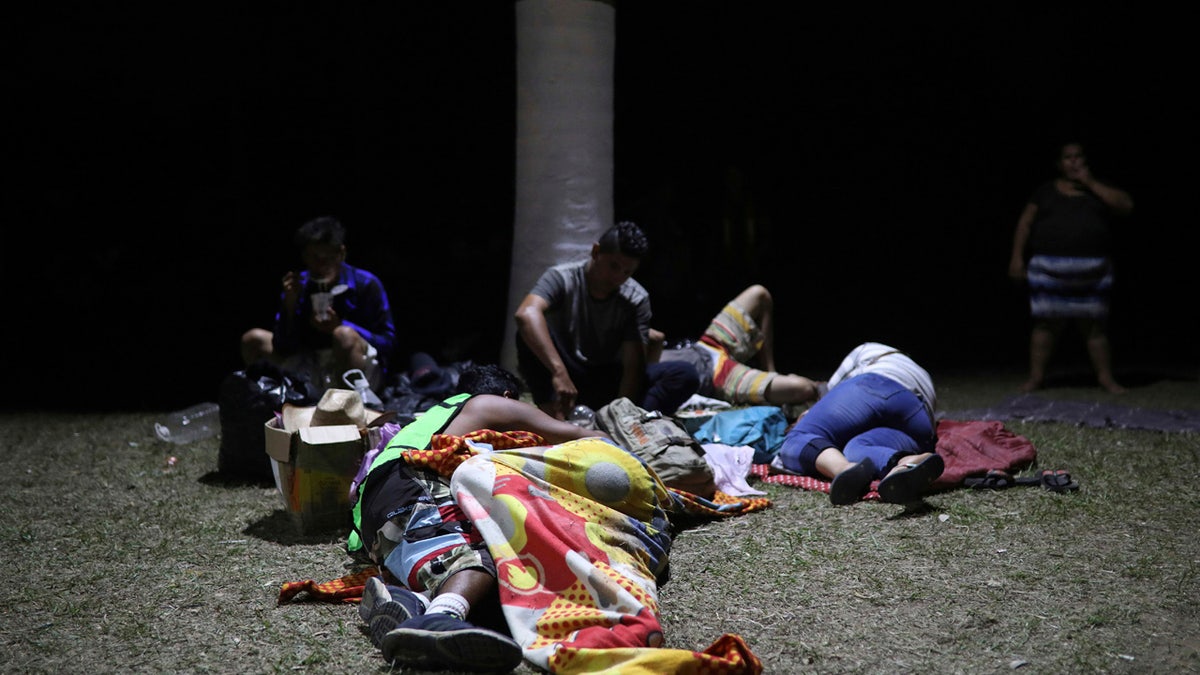
Central American migrants, who are participating in the annual Migrant Stations of the Cross caravan, go to sleep on the grass during the group's stop at a sports center in Matias Romero. (AP)
"It is not this government's responsibility to make immigration decisions for the United States or any other country, so it will be up to the appropriate authorities of the United States to decide whether to authorize the entry of the caravan participants to U.S. territory," the statement said.
While Mexico may be offering refugee status to some in the caravan, an organizer behind the march, Pueblos Sin Fronteras, told Buzzfeed News the caravan was far from over. A couple hundred men did break off from the group Sunday, but that was in order to hop a freight train north with hopes of finding a faster way to enter the U.S.
“We will continue,” Gina Garibo said. “We have to follow through with our promise.” Garibo added the organization will continue to travel to the U.S. border with asylum seekers.
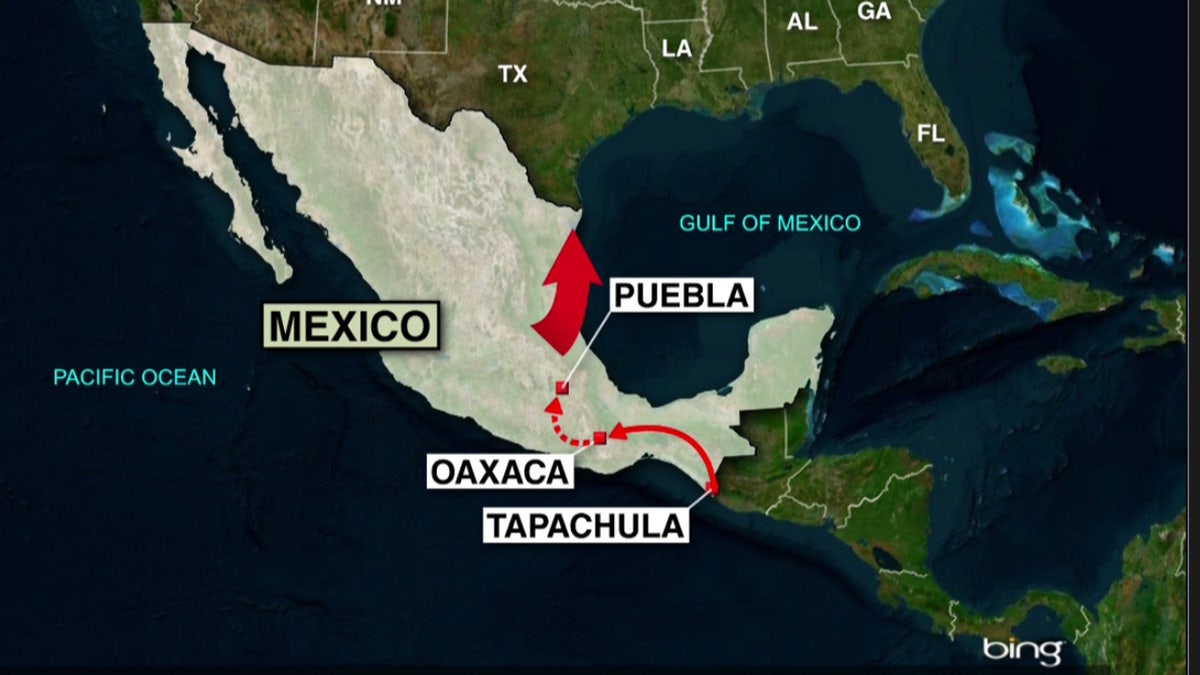
The location of the caravan as of Tuesday. (Fox News)
The large group that spent the night in Matías Romero, located in the Oaxaca state. The group is expected to take buses to the last scheduled stop, a migrant rights symposium in central Puebla state on Thursday, according to the Associated Press.
For some towns in the southern part of the country where the caravan is passing through, local officials have offered lodging in town squares and empty warehouses or arranged transport for participants of the march, according to Reuters.
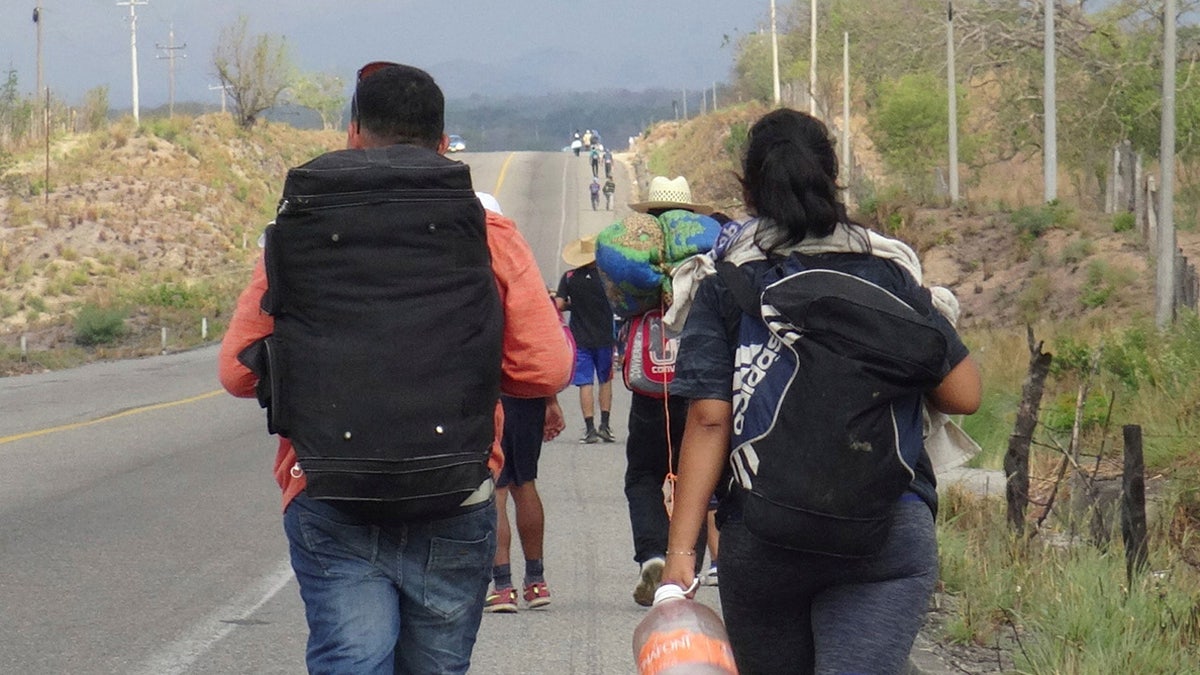
Central American migrants arrive in Ixtepec, Oaxaca, Mexico, before continuing their journey to the U.S. (Reuters)
“The authorities want us to leave their cities,” Rodrigo Abeja, an organizer from the group, told the news agency. “They’ve been helping us, in part to speed the massive group out of their jurisdictions.”
TRUMPS SLAMS MEXICO AND DEMS AS CARAVAN OF IMMIGRANTS HEADS TO US SOUTHERN BORDER
Some of that help has included using buses, cars, ambulances and police trucks organized by local officials to move people along.
“There’s a lot of pressure from authorities to stop the caravan because of Donald Trump’s reaction,” Abeja told Reuters.
Trump railed once again on Twitter on Tuesday about the caravan, saying: "The big Caravan of People from Honduras, now coming across Mexico and heading to our 'Weak Laws' Border, had better be stopped before it gets there. Cash cow NAFTA is in play, as is foreign aid to Honduras and the countries that allow this to happen. Congress MUST ACT NOW!"
Under Mexican law, Central Americans who enter Mexico legally are generally allowed to move freely through the country, even if their goal is to cross illegally into the U.S.
Mexico, however, does routinely stop and deport Central Americans, sometimes in numbers that rival those of the United States.
Deportations of foreigners dropped from 176,726 in 2015 to 76,433 in 2017, in part because fewer were believed to have come to Mexico, and more were requesting asylum in Mexico.
Mexico granted 3,223 asylum requests made in 2016, and 9,626 requests filed last year are either under review or have been accepted, according to the AP.
The Associated Press contributed to this report.








































